カリキュラム
International Career Seminar
開催日程・場所 受講者 / プログラム概要 / レポート提出
開催日程・場所
日程:2017年10月7日(土)~10月9日(月・祝) 2泊3日
住所:栃木県宇都宮市駒生1丁目1番6号
※「コンセーレ (栃木県青年会館)」に集合して下さい。
(JR宇都宮駅西口からバスで15分程度)
受講者
対象者:栃木県内外の大学生や社会人等
定 員:60名(先着順)
参加費:12,000円(宿泊費、食費込)
<注意事項>
既に行われた「International Career Seminar」「国際実務英語」「国際実務英語Ⅰ」「国際実務英語Ⅱ」を履修し単位を取得した宇都宮大学の学生は、今回履修しても単位が重複して付与されることはありません。
プログラム概要(予定)
<1日目> 10月7日 土曜日
9:00~ 9:30 受付
9:30~ 9:45 開講式/オリエンテーション
9:50~12:00 全体講義/ワークショップ
12:00~12:50 昼食
13:00~13:20 趣旨説明/分科会発表のプレゼン方法説明
13:20~15:20 パネルトーク
15:50~17:50 分科会 参加者は分科会を一つ選択します。
18:30~20:00 交流会
<2日目> 10月8日 日曜日
7:30~ 8:20 朝食
8:30~12:00 分科会
12:00~12:50 昼食
13:00~15:30 分科会
15:30~17:30 分科会まとめ/中間発表準備
17:30~18:30 中間発表
18:30~19:30 夕食
19:30~21:30 発表準備(自由)
<3日目> 10月9日 月曜日
7:30~ 8:20 朝食
9:00~10:00 発表準備
10:00~12:20 全体発表
12:20~13:10 昼食
13:20~15:00 振り返り/意見交換/全体総括 等
15:00~15:15 閉講式
15:30~ バスで宇都宮大学・宇都宮駅に移動・解散(現地解散も可)
全体講義
Critical Thinking and Reasons for Being:Finding Meaningful Work in A Global Age
講師:Barbara Morrison, Ph.D.
バーバラ モリソン 氏 (宇都宮大学国際学部 准教授)
In this group session we will be talking and thinking about 生きがい and the ways in which we can begin to bring a sense of meaning (raison d'etre: reason for being) into our work lives. Using critical thinking as a guide, we will work together to understand how to both discover and cultivate what is meaningful for each of us in order to pursue and to accomplish careers both domestic and abroad.
<プロフィール>
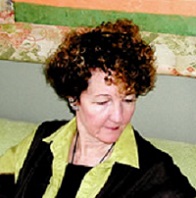 My career path has been varied to say the least and not without defeats. Very early in my career I understood that my best life lay in education and academia, but as I felt my family was unsupportive of that endeavour I turned to business - taking positions in real estate and head-hunting after having explored careers in law, government, retail, journalism, non-profit and the arts - before eventually finishing degrees in both Japanese and English literature.
My career path has been varied to say the least and not without defeats. Very early in my career I understood that my best life lay in education and academia, but as I felt my family was unsupportive of that endeavour I turned to business - taking positions in real estate and head-hunting after having explored careers in law, government, retail, journalism, non-profit and the arts - before eventually finishing degrees in both Japanese and English literature.
分科会
参加者は分科会を一つ選択します。
分科会A:Agriculture/Rural Development Cooperation and Communication Skill
講師:Kazunari Fukumura, Ph.D.
福村 一成 氏
(宇都宮大学 農学部 農業環境工学科 准教授)
Communication skill is a key factor to plan a sustainable and rational cooperation project to meet local development needs. Through this workshop, we focus on obtaining a nonverbal communication skill for rural appraisal in terms of agriculture practices and daily life.
<プロフィール>
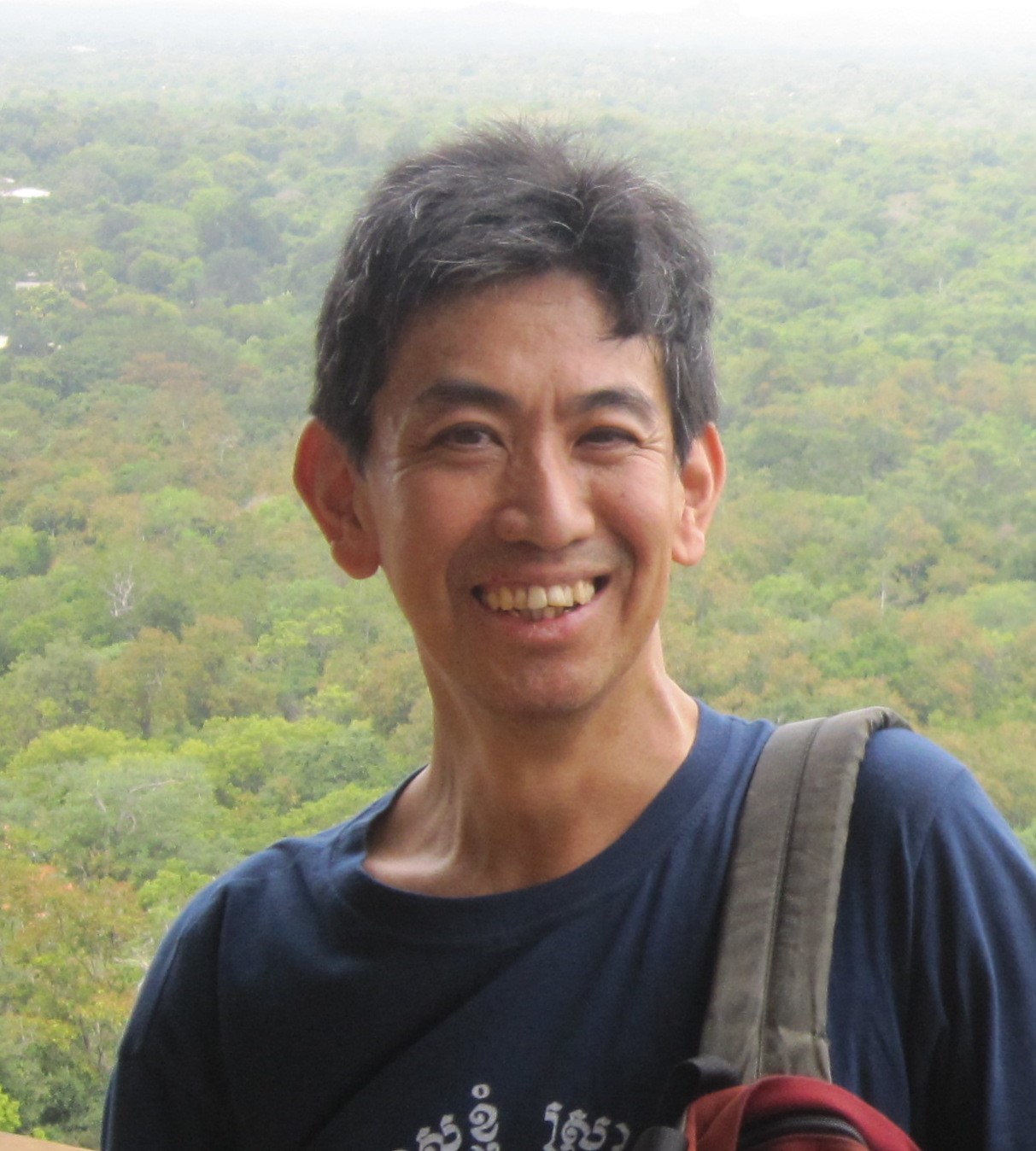 Fukumura Kazunari earned his Master’s degree(1988)from Tokyo A&T University and a PhD(1996) in Irrigation Engineering from University of Arizona after 2 years JOCV term in Ethiopia. His professional career in international development field includes; Irrigation and Water Management training coordinator at JICA’s training center(4 years) and soil and water conservation advisor in Paraguay under JICA short - term scheme. He has been an advisor and project evaluation committee member for ERECON(a Tokyo based NPO)project in Cambodia and Thailand since 2013.
Fukumura Kazunari earned his Master’s degree(1988)from Tokyo A&T University and a PhD(1996) in Irrigation Engineering from University of Arizona after 2 years JOCV term in Ethiopia. His professional career in international development field includes; Irrigation and Water Management training coordinator at JICA’s training center(4 years) and soil and water conservation advisor in Paraguay under JICA short - term scheme. He has been an advisor and project evaluation committee member for ERECON(a Tokyo based NPO)project in Cambodia and Thailand since 2013.
分科会B:What Is An Important Issue Which You Care About? ‒ Starting Point of Your Career in Globalization
講師:Sae Osawa 大澤 小枝 氏
(国際開発ソリューションズ 教育コンサルタント)
You may already know what you want to become in the future. However, have you ever thought about what you want to contribute to? Through this workshop, participants will learn and consider different career paths in International Development.
<プロフィール>
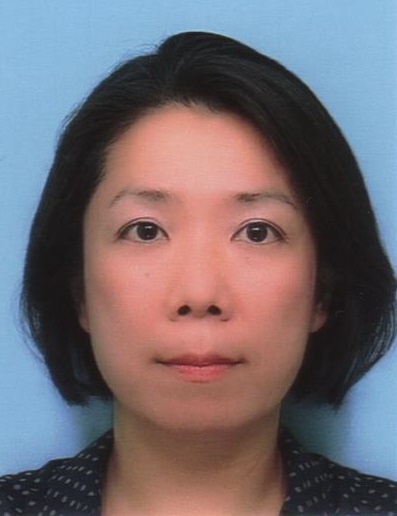 Sae OSAWA has a 15-year-career in International Development as Education Specialist. Having two master degrees: Educational Planning and Mediterranean Studies(mainly Middle Eastern Area Studies) from University of London, she has worked mainly in
the Arab region, with different UN organisations such as UNICEF, UNHCR and UNRWA, NGOs and JICA.
Sae OSAWA has a 15-year-career in International Development as Education Specialist. Having two master degrees: Educational Planning and Mediterranean Studies(mainly Middle Eastern Area Studies) from University of London, she has worked mainly in
the Arab region, with different UN organisations such as UNICEF, UNHCR and UNRWA, NGOs and JICA.
分科会C:"Shy" So What? - Let's Think
About Why We Communicate
講師:Kazuhiko Yoshida, Ph.D. 吉田 一彦 氏 (宇都宮大学 国際学部 教授、JICA 青年海外協力隊事務局 技術顧問)
The shyest people wish to communicate. That could be a key to understanding why we enjoy talking even in English, the toughest language. Throughout practices with perspective changes, we re-discover our communication history and imagine ourselves to be better communicators.
<プロフィール>
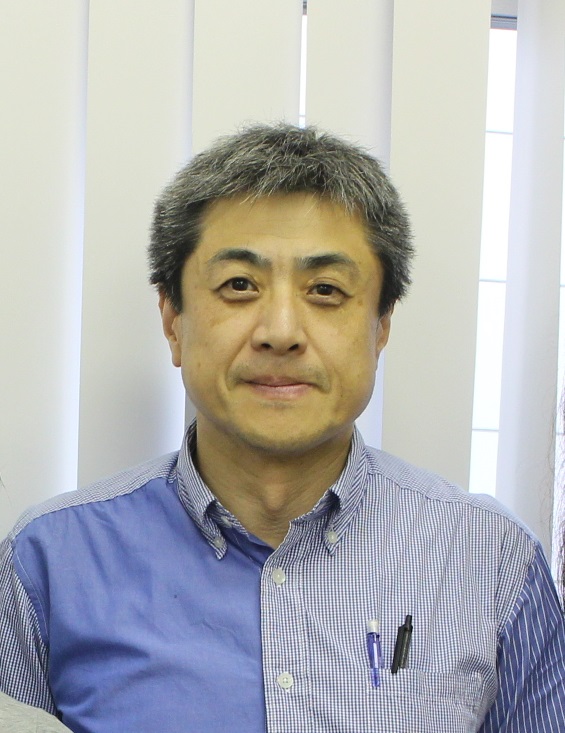 Kazuhiko YOSHIDA, descendant of Emishi-Japanese from Rikuzen-Takata, is a foreign language learner/user and instructor/researcher of human languages. He lived in France as a student and in Pakistan and Thailand as a language teacher. After receiving a Ph.D. in linguistics, he has been teaching linguistics and multilingual communication at Utsunomiya University since 2003 and supporting volunteers overseas since 2014. Although he has visited over 30 countries and worked with people of a hundred of different nationalities, he is continuously amazed by the diversity of the world.
Kazuhiko YOSHIDA, descendant of Emishi-Japanese from Rikuzen-Takata, is a foreign language learner/user and instructor/researcher of human languages. He lived in France as a student and in Pakistan and Thailand as a language teacher. After receiving a Ph.D. in linguistics, he has been teaching linguistics and multilingual communication at Utsunomiya University since 2003 and supporting volunteers overseas since 2014. Although he has visited over 30 countries and worked with people of a hundred of different nationalities, he is continuously amazed by the diversity of the world.
分科会D:You Too Can Have Your Own Business
講師:Amy Long エイミー ロング 氏
(Dave and Amy English School 講師、マネージャー、教材開発者)
Owning your own business is a dream for many. And seems daunting. But it needn’t be. Any idea can become a successful business if done right. In this work group session, we will talk about what is necessary to make a business successful. Even if you don't want to start your own business, there will be many ideas that you can use in your everyday life to become more efficient, more businesslike and more successful.
<プロフィール>
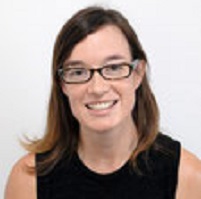 Amy (from Texas in America) and husband Dave(from Liverpool, England)have
been teaching English in Saitama, Japan since 1996. They opened Dave and Amy
English School in Yono in 2004 with 20 students. Since then, they have opened 3 more
schools in Saitama City and now have over 450 students and 6 teachers. They have
written 6 text books to use in their classrooms (and are in the process of writing 6
more). They have 2 children (Alfie and Leon) who they are raising bilingually:
English at home, Japanese at the local school.
Amy (from Texas in America) and husband Dave(from Liverpool, England)have
been teaching English in Saitama, Japan since 1996. They opened Dave and Amy
English School in Yono in 2004 with 20 students. Since then, they have opened 3 more
schools in Saitama City and now have over 450 students and 6 teachers. They have
written 6 text books to use in their classrooms (and are in the process of writing 6
more). They have 2 children (Alfie and Leon) who they are raising bilingually:
English at home, Japanese at the local school.
分科会E:Innovation Leadership to Solve the Unsolved
講師:Takeshi Komino 小美野 剛 氏
CWS Japan事務局長
アジア減災災害対応ネットワーク(ADRRN)理事
世界人道サミット(WHS)アジア準備委員
支援の質とアカウンタビリティ向上に関するネットワーク(JQAN)代表
アクトアライアンス(ACT Alliance)人道支援政策及び実践助言委員会委員長
コア人道支援基準(CHS)暫定理事
Community World Service Asiaリージョナルプログラム部長
The world is facing numerous challenges, and in international cooperation, we need to change the way we approach the unsolved problems. The workshop will explore elements of innovation leadership, and how crosssectoral innovation with NGOs and companies are pursued.
<プロフィール>
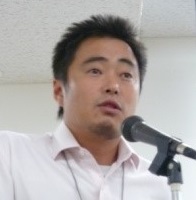 Takeshi has worked in the humanitarian sector for over 10 years with disaster management an advocacy leadership positions. He has led operations in Afghanistan, Pakistan, Myanmar, Thailand, and currently serves as General Secretary of CWS Japan in Tokyo. He represents various international networks and global initiatives, and has
been behind formation of some of the key civil society networks in Asia. He holds a Masters Degree in international development from Brandeis University, MA USA.
Takeshi has worked in the humanitarian sector for over 10 years with disaster management an advocacy leadership positions. He has led operations in Afghanistan, Pakistan, Myanmar, Thailand, and currently serves as General Secretary of CWS Japan in Tokyo. He represents various international networks and global initiatives, and has
been behind formation of some of the key civil society networks in Asia. He holds a Masters Degree in international development from Brandeis University, MA USA.
分科会F:‘What We See In Others Is A Reflection Of Ourselves’- Knowing and Expression of Ourselves
講師:Linda Ohama リンダ オオハマ 氏 (日系三世の映画監督、作家、ビジュアル・アーティスト)
I hope to enrich understanding of yourself and others through a series of creative explorations using various forms of artistic expression and media. In Japan, strong individuality and independent thinking or expression are not highly encouraged or developed by society. Therefore, being different is not always easy in a Japanese cultural framework and remains a challenge to successful multicultural living for everyone. This workshop will inspire curiosity, trust, honesty, openness, self-confidence and awareness. There is valuable truth in the saying, ‘understanding others is really understanding oneself’.
<プロフィール>
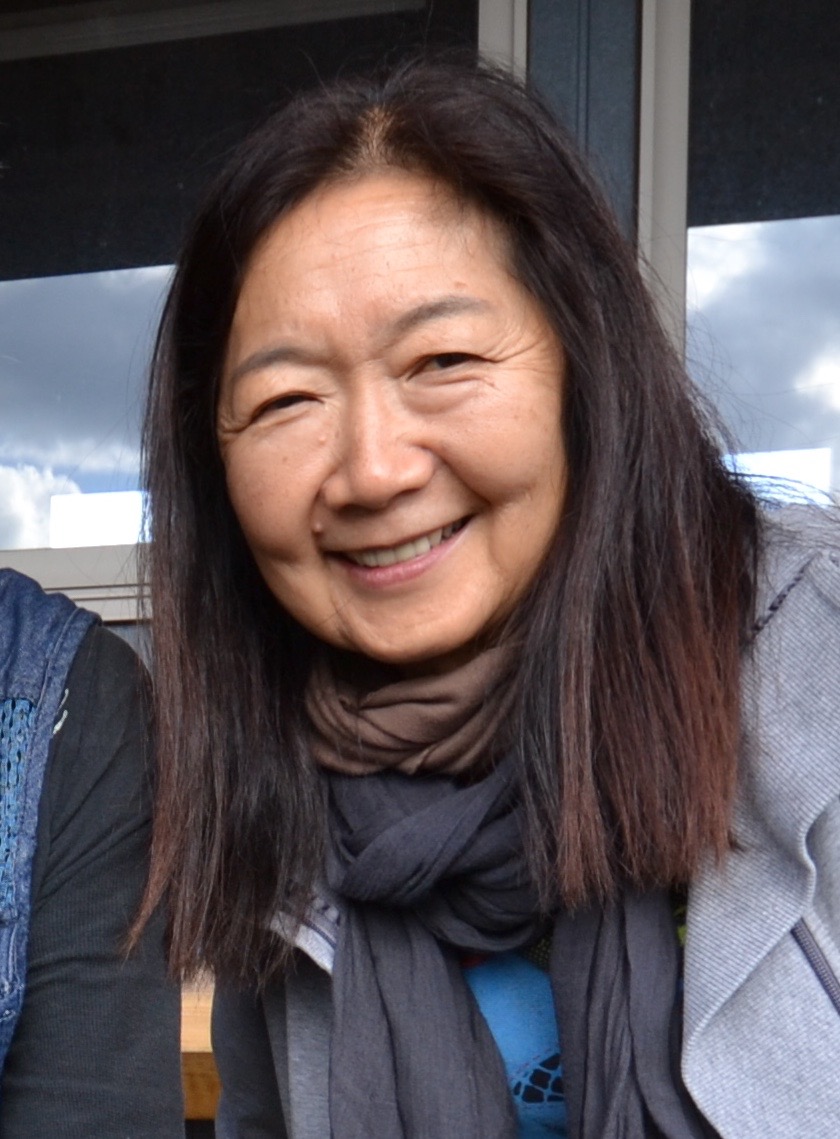 Linda Ohama, as a third generation ‘sansei’ born in Canada, has seen many facets of multiculturalism. Linda has been working on film for 25 years. Her films have been screened internationally and
received numerous awards. Her last film, “Tohoku no Shingetsu”, was filmed 2.5 years in Iwate, Miyagi and Fukushima provinces. It has recently been screened in international film festivals, receiving a
nomination for Best International Documentary Award at the Rome Independent Film Festival.
Linda Ohama, as a third generation ‘sansei’ born in Canada, has seen many facets of multiculturalism. Linda has been working on film for 25 years. Her films have been screened internationally and
received numerous awards. Her last film, “Tohoku no Shingetsu”, was filmed 2.5 years in Iwate, Miyagi and Fukushima provinces. It has recently been screened in international film festivals, receiving a
nomination for Best International Documentary Award at the Rome Independent Film Festival.
レポートの提出について
宇都宮大学等で履修登録をしている学生はレポートの提出が必要となります。
40% participation and presentation 60% report and submission of text.
The details will be updated later.

